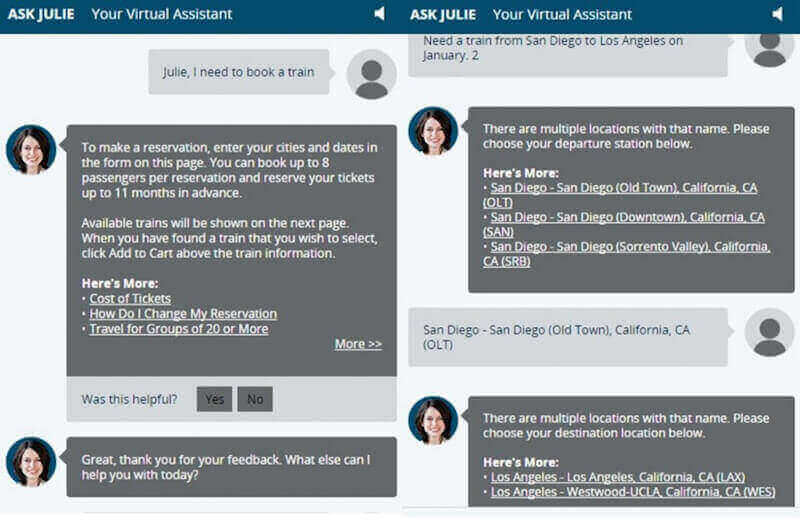
You know how you can go online, digitally paint and repaint a room in your home to see how it looks before you pull the trigger on the changeover? Well, now you can do something similar with your face. OpenAI has licensed its technology to Morgan Stanley so its investment advisers can give better advice and to Khan Academy so its students have access to a chatbot tutor.Join top executives in San Francisco on July 11-12, to hear how leaders are integrating and optimizing AI investments for success. Instead, expect that changes will come a little at a time: a hit song created with AI, a new test at the doctor’s office to detect cancer or slightly better customer service. When can I expect this to start affecting my life?ĭon’t expect to wake up one morning and suddenly live in an AI world.
#Makeup ai chatbot examples software
Since then, computer chips have gotten much faster and can handle the huge amount of data required for modern AI, and new ways of writing software have also made the process more efficient.Ĭhipmakers such as Nvidia and tech companies including Google, Meta and OpenAI have poured resources into those two areas, as well as into consolidating talented computer scientists under their respective roofs. It has been 26 years since the triumph of IBM’s Deep Blue computer program over chess champion Garry Kasparov - a milestone in AI research and development. In addition, tangible uses are already popping up, from hit songs to help for the blind. (Some detractors have called this “ glorified autocomplete.”)įor one thing, money is pouring into the sector, with $1.7 billion in startup investments alone in the first three months of 2023, according to the research firm PitchBook. So what’s really going on inside the computers?ĪI software is able to imitate humans so convincingly because it’s good at prediction: It guesses the word or sentence or image you want to see next. If you’d like a longer answer, NBC News spoke with several philosophers about how they approach the question. While a few people believe AI is already coming alive, they’re a small group, and the idea is really a distraction from what’s going on inside the computers. We could write a whole book on this one, but here’s a short answer: No, they can’t. Is it really possible for computers to ‘think’?

You can find a more extensive glossary of AI terms here.

“Generative AI,” a newer term, refers to software like ChatGPT that gives rise to new material. British mathematician Alan Turing in 1950 all but predicted the development of “digital computers” that could persuasively imitate humans, and in 1955, American mathematician John McCarthy and colleagues at Dartmouth College coined the term “artificial intelligence” in a research proposal. The term has its origins among scientists after World War II. In 2016, Microsoft even released an AI chatbot named Tay but quickly canceled it after people taught it to use racist language.
#Makeup ai chatbot examples windows
Think of the customer service chat windows that pop up on some websites.

Mediocre chatbots have been around for a long time. Other tech companies, such as Google and Meta, had been testing similar chatbots behind closed doors, but OpenAI made its widely available - a decision that was controversial because of the unknown risks. The tool, which the company says is only one step in a long process of developing AI, quickly went viral. It was like talking to someone who knew everything. In November, OpenAI released the chatbot ChatGPT to the public, and it quickly became clear that it was leaps and bounds ahead of chatbots that had come before. You can thank (or blame) one specific company: OpenAI, a tech startup based in San Francisco with a few hundred employees. Why is everyone suddenly talking about AI? Here’s a guide to help you understand what all the hype is about. So this might be a good moment to take a step back and review the basics. But for a lot of people, it’s still a fuzzy concept that doesn’t affect their day-to-day lives.


 0 kommentar(er)
0 kommentar(er)
